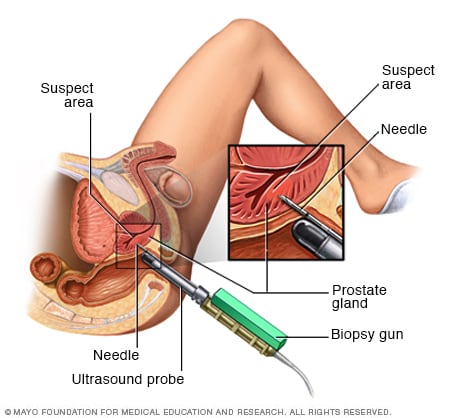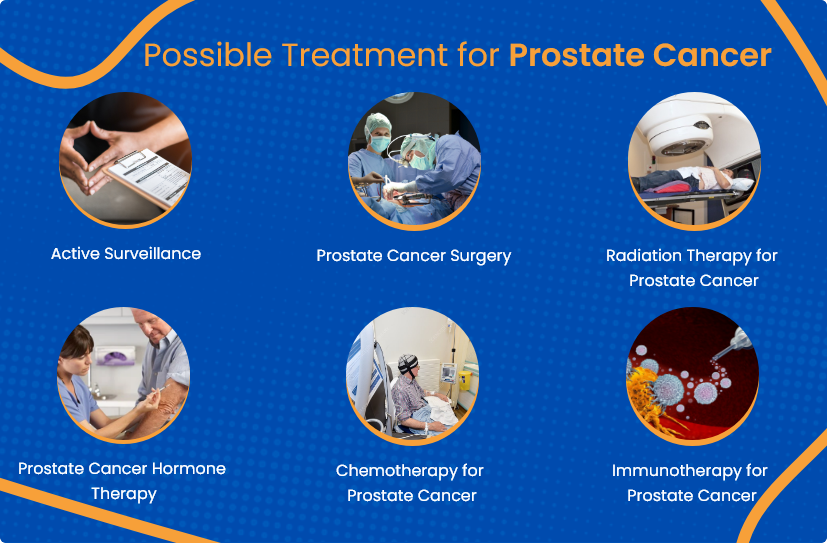The Basic Principles Of Best Prostate Cancer Hospital In Mumbai
Wiki Article
Prostate Cancer Therapy: Surgical and Non-Surgical Approaches Explained
When faced with a prostate cancer diagnosis, the array of therapy choices can seem overwhelming. This comprehensive introduction intends to drop light on the intricacies of prostate cancer therapy, offering understandings into the intricacies of each strategy to equip people in making educated choices concerning their health and wellness.Surgical Therapy Alternatives
When considering medical therapy options for prostate cancer cells, patients and healthcare carriers commonly weigh the benefits and dangers associated with various treatments. This treatment is typically recommended for individuals with localized prostate cancer cells and uses the capacity for a remedy.
Another medical choice is robotic-assisted laparoscopic prostatectomy, a minimally intrusive treatment that makes use of a robot system to help the specialist in getting rid of the prostate. This technique can cause much less blood loss, much shorter health center stays, and faster healing times compared to standard open surgical procedure. However, it additionally carries the threat of problems such as infection and injury to bordering organs.
Ultimately, the choice of surgical therapy for prostate cancer depends on numerous variables including the phase of the cancer, the client's total wellness, and their preferences regarding prospective adverse effects and recuperation times. Consulting with a multidisciplinary team consisting of urologists, oncologists, and radiation oncologists can help individuals make educated decisions concerning the most suitable medical technique for their private instance.

Non-Surgical Treatment Choices
Taking into consideration options to medical treatments, non-surgical treatment choices for prostate cancer offer patients extra methods for handling the condition while reducing possible surgical risks. One non-surgical strategy is Active Surveillance, where individuals with low-risk prostate cancer cells are checked closely with routine check-ups, blood examinations, and biopsies, without going through immediate treatment. This approach intends to avoid unnecessary therapy and its connected adverse effects, such as urinary incontinence and erectile dysfunction.An additional non-surgical option is Radiation Treatment, which makes use of high-energy rays to eliminate cancer cells (best prostate surgeon in Mumbai). This treatment can be supplied on the surface using an equipment (External Beam Radiation) or internally via tiny radioactive pellets placed near the lump (Brachytherapy) Radiation therapy can be utilized as a primary treatment or in combination with various other therapies, such as hormone treatment
Furthermore, Hormone Treatment is a non-surgical method that aims to decrease the levels of male hormonal agents (androgens) in the body, as these hormones can sustain the growth of prostate cancer cells. By blocking or reducing androgen degrees, hormonal agent treatment can reduce down cancer progression and ease signs and symptoms in sophisticated situations.
Robotic-Assisted Surgical Treatment for Prostate Cancer

One of the vital benefits of Read Full Report robotic-assisted surgical treatment for prostate cancer is its capacity to lower the risk of complications and side results commonly linked with open surgical treatment, such as blood loss, pain, infection, and prolonged recuperation times. On the whole, robotic-assisted surgery represents a cutting-edge technique to prostate cancer treatment that integrates technological improvements with surgical proficiency to enhance person outcomes.
Radiation Therapy for Prostate Cancer Cells
Using innovative radiation technology, radiation therapy plays a critical function in the comprehensive therapy of prostate cancer cells. Radiation therapy utilizes high-energy radiation to damage cancer cells and reduce tumors. It is a common treatment alternative for prostate cancer cells, either as a primary therapy or in combination with surgical treatment, hormonal agent therapy, or chemotherapy.There are two main types of radiation treatment used for prostate cancer cells: outside light beam radiation treatment (EBRT) and brachytherapy. These seeds emit radiation that kills the cancer cells over time.
Radiation therapy for prostate cancer is highly effective, with high remedy prices, especially for local cancer. It is additionally a valuable alternative for people who may not appropriate candidates for surgical procedure. Like any treatment, radiation treatment may have side effects, such as urinary problems, tiredness, and skin irritability, however these are usually short-lived and manageable.
Hormone Treatment for Prostate Cancer Cells
Hormonal agent therapy is a generally utilized treatment approach for prostate cancer cells monitoring. Prostate cancer is typically sustained by the man hormone testosterone. Hormone treatment, likewise referred to as androgen starvation therapy, aims to decrease testosterone degrees in the body or obstruct the hormone's effects on the prostate cancer cells, thus reducing down the illness's development. This treatment is specifically reliable in sophisticated phases of prostate cancer, where surgery or radiation treatment might not suffice.There are different sorts of hormonal agent therapy for prostate cancer, including medicines that lower testosterone degrees (such as luteinizing hormone-releasing hormone agonists and villains), or medications that block testosterone from reaching cancer cells (like anti-androgens) Hormone therapy can be utilized alone or in combination with various other treatments like radiation therapy, depending on the stage and aggression of the cancer.
While hormone therapy can efficiently control prostate cancer cells development, it might include adverse effects such as hot flashes, loss of sex drive, moved here impotence, and weakening of bones - best prostate cancer doctor. Normal tracking and discussions with healthcare providers are critical to take care of these negative effects and make certain the therapy's effectiveness
Final Thought
In verdict, the therapy alternatives for prostate cancer cells include medical and non-surgical approaches such as robotic-assisted surgery, radiation therapy, and hormonal agent therapy. Each technique has its very own advantages and threats, and the choice of treatment relies on various aspects such as the stage of cancer cells and total health and wellness of the patient. It is necessary for clients to review these alternatives with their health care provider to identify one of the most ideal strategy for their specific situation.
Utilizing innovative radiation modern technology, radiation treatment plays a vital duty in the detailed treatment of prostate cancer cells. It is a common treatment choice for prostate cancer cells, either as a key treatment or in mix with surgical treatment, hormone treatment, or chemotherapy.
Radiation therapy for prostate cancer is very effective, with high treatment rates, especially for local cancer cells.Hormone therapy is a typically made use of treatment method for prostate cancer management.In final thought, the treatment alternatives for prostate cancer cells consist of surgical and non-surgical techniques such as robotic-assisted surgical treatment, radiation treatment, and hormonal agent treatment.
Report this wiki page